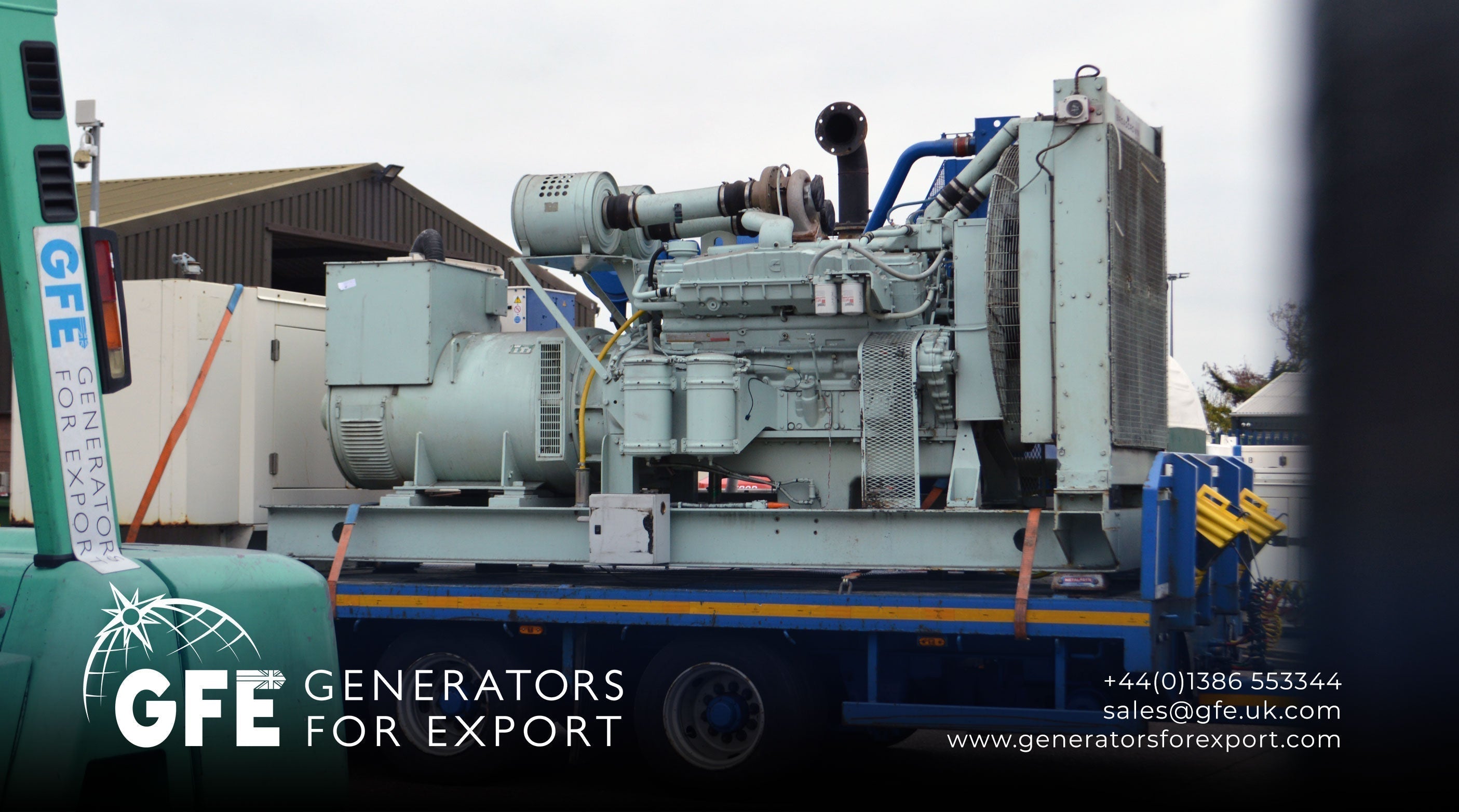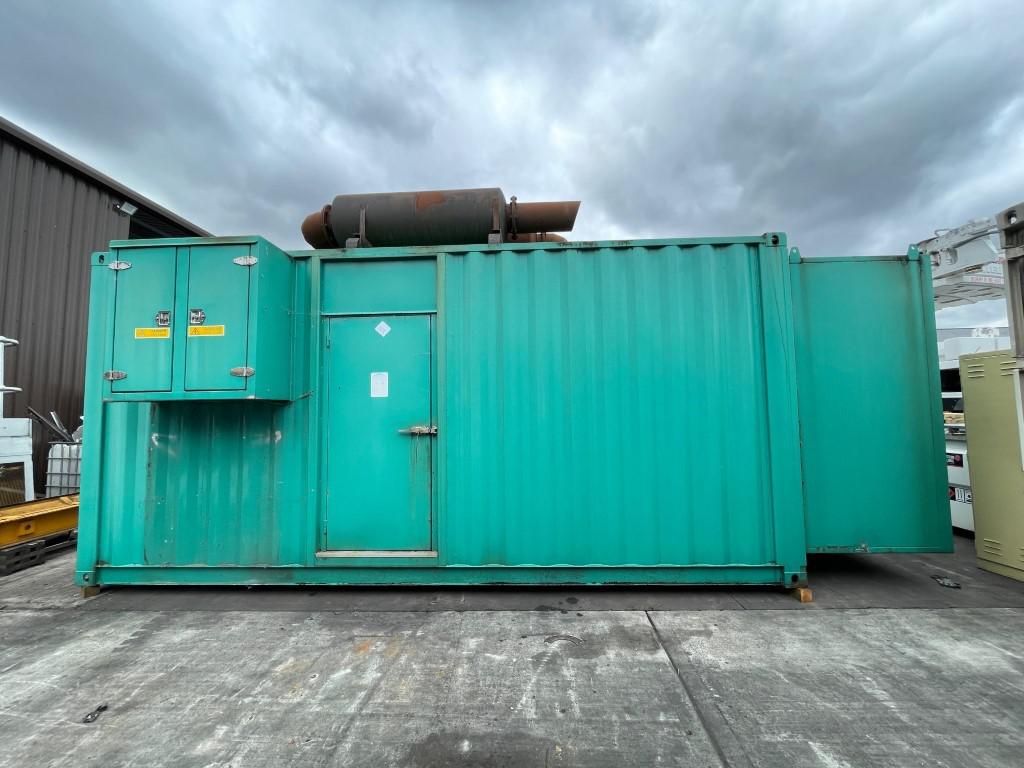Generators are essential machines that provide backup power in emergencies, support off-grid operations, and power construction sites, industries, and homes. Whether you're new to generators or looking to understand their inner workings better, this guide will break down everything you need to know.
What Is a Generator?
A generator is a device that converts mechanical energy into electrical power. Unlike a battery, which stores electricity, a generator continuously produces electricity as long as it has a fuel source. This makes generators a reliable power solution in areas with unstable electrical grids, during emergencies, or in off-grid environments. They come in various sizes, from small portable units for camping to massive industrial models powering hospitals and factories. Their versatility makes them essential for businesses, construction sites, and homeowners looking for a dependable backup power supply.
Key Components of a Generator
A generator consists of several essential parts, each playing a crucial role in the power generation process:
- Engine – The primary source of mechanical energy, typically powered by diesel, petrol, natural gas, or propane. Generators For Export are specialists in used diesel generators.
- Alternator – Converts mechanical energy into electrical energy.
- Fuel System – Supplies the necessary fuel to the engine.
- Voltage Regulator – Maintains a stable electrical output.
- Cooling System – Prevents overheating during operation.
- Exhaust System – Expels harmful gases produced during combustion.
- Control Panel – Manages various functions, including start/stop, voltage regulation, and safety features.
How Generators Produce Electricity
The process of electricity generation involves several steps:
- Fuel Combustion: The engine burns fuel to create mechanical energy.
- Rotational Motion: This energy turns the alternator’s rotor.
- Electromagnetic Induction: As the rotor spins within the stator, it generates an electric current.
- Voltage Regulation: The voltage regulator ensures a consistent output suitable for powering devices.
- Power Distribution: The generated electricity is delivered to the intended appliances or electrical grid.
Types of Generators
Generators come in various types, each suited for different applications:
- Inverter Generators: Inverter generators are more fuel-efficient and quieter than traditional generators. They produce clean electricity with minimal fluctuations, making them ideal for sensitive electronics like laptops and medical devices. There are also referred to as 'suit-case' generators.
- Portable Generators: Small portable generators are typically petrol or diesel-powered. They are ideal for temporary power needs and are commonly used for outdoor events, camping, and construction sites.
- Standby Generators: Standby generators are permanently installed and provide automatic backup power. These units, often powered by diesel or natural gas, are used in homes, hospitals, data centres, and businesses, and are designed to support equipment in the event of a mains power failure.
- Industrial Generators: Industrial generators are high-capacity units designed for large-scale operations. Typically diesel-powered for efficiency and durability, they are used in factories, hospitals, and remote work sites.
Choosing the Right Generator
Selecting the right generator depends on several factors:
- Power Requirement: Calculate the total wattage of appliances you need to run.
- Fuel Type: Diesel generators are more fuel-efficient and durable, while petrol generators are often cheaper initially.
- Usage Frequency: Standby generators are ideal for frequent power cuts, while portable ones suit occasional use.
- Noise Level: Some environments, such as residential areas, require quieter models like inverter generators.
Maintaining a Generator for Optimal Performance
Proper maintenance ensures your generator operates reliably when needed. Key maintenance tasks include:
- Regular Oil Changes – Prevents engine wear and ensures smooth operation.
- Fuel System Inspection – Avoids blockages and contamination.
- Battery Checks – Ensures the generator starts when required.
- Cooling System Maintenance – Prevents overheating and potential damage.
- Load Testing – Verifies performance under expected conditions.
Common Generator Issues and Troubleshooting
Even the best generators can experience problems. Here are some common issues and their solutions:
- Generator Won’t Start: If your generator fails to start, check the fuel level and battery charge. On petrol sets, inspect spark plugs and air filters, and ensure the choke and fuel valve are in the correct position.
- Overheating: Overheating is a common issue caused by inadequate ventilation, low coolant levels, or overloading. Ensure proper airflow, check coolant levels, and avoid exceeding the generator’s rated capacity.
- Inconsistent Power Output: If the generator’s power fluctuates, ensure the voltage regulator is functioning correctly and clean fuel injectors to prevent clogging.
The Future of Generator Technology
With advances in technology, generators are becoming more efficient, quieter, and environmentally friendly. Some emerging trends include:
- Hybrid Generators: These combine battery storage with traditional fuel engines for improved efficiency.
- Bio diesel: (also known as green diesel) is an alternative fuel derived from renewable sources like vegetable oils and animal fats. It reduces carbon emissions and enhances sustainability while maintaining compatibility with conventional diesel engines.
- Renewable Energy Integration: Solar and wind-powered generators reduce reliance on fossil fuels.
- Smart Generators: IoT-enabled units allow remote monitoring and control, improving reliability and efficiency.
Generators are indispensable for providing backup power and supporting off-grid applications. Understanding how they work, their types, and essential maintenance can help ensure reliable performance when you need it most.
Whether you’re a homeowner, business owner, or contractor, investing in the right generator and maintaining it properly can save you time, money, and inconvenience.
Need expert advice on generators? Contact Generators For Export for high-quality, reliable power solutions tailored to your needs!
Call: +44(0)1386 553344 | Email: sales@gfe.uk.com





